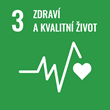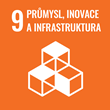Informace o projektu
Computational reconstruction of mechanistic framework underlying receptor tyrosine kinase function in signal transduction
(FGFSIGMOD)
- Kód projektu
- MUNI/G/1771/2020
- Období řešení
- 4/2021 - 12/2023
- Investor / Programový rámec / typ projektu
-
Masarykova univerzita
- Grantová agentura MU
- INTERDISCIPLINARY - Mezioborové výzkumné projekty
- Fakulta / Pracoviště MU
-
Fakulta informatiky
- doc. RNDr. David Šafránek, Ph.D.
- RNDr. Matej Hajnal
- RNDr. Samuel Pastva, Ph.D.
- RNDr. Matej Troják, Ph.D.
- Další fakulta/pracoviště MU
- Lékařská fakulta
Activating mutations in receptor tyrosine kinase FGFR3 (fibroblast growth factor receptor 3) account for at least 10 human disorders, including cancer and severe or lethal defects in bone growth such as achondroplasia. Prolonged activation of ERK MAP kinase is a major mediator of aberrant FGFR3 signaling, but the molecular processes underlying this feature remain poorly characterized. A lack of coherent hypothesis explaining the mechanism of prolonged ERK activation in FGFR3 signaling complicates understanding of the molecular pathology of achondroplasia, and compromises development of treatment for this devastating human condition. Rigorous characterization of FGFR3-mediated signaling is needed. Such effort requires a challenging application of computer-aided methods which need a significant advancement.
Our previous work addresses complex regulatory networks that may contribute to prolonged ERK activation: mechanisms regulating FGFR3 expression, FGFR3 interactions with its downstream mediators, processes governing FGFR3 turnover at the cell membrane, and negative feedback mechanisms involved in FGFR3-ERK signal downregulation. We have already applied state-of-the-art methods to preliminary top-down models of the mechanism. However, existing methods do not scale for large bottom-up models integrating involved mechanisms and many downstream mediators with unknown functions.
The project aims at reconstructing computational models of FGFR3 signaling and using them to develop rigorous hypothesis explaining the prolonged ERK activation. To that end, we will further develop and improve relevant computer-aided methods. Models will be validated via biological experiments designed based on model-driven predictions. These will be experimentally targeted in cell models to pathological FGFR3 signaling.
The biological impact is in aiding development of novel treatments for achondroplasia. Because many other, FGFR3-unrelated receptor tyrosine kinases (RTKs) utilize ERK activation, our work will advance the understanding of general mechanisms (developmental defects, cancer and other disorders caused by aberrant RTK activation). The informatics impact is in producing a novel model-based computer-aided framework for human cell signaling.
Cíle udržitelného rozvoje
Masarykova univerzita se hlásí k cílům udržitelného rozvoje OSN, jejichž záměrem je do roku 2030 zlepšit podmínky a kvalitu života na naší planetě.
Publikace
Počet publikací: 5
2023
-
Phenotype Control of Partially Specified Boolean Networks
Computational Methods in Systems Biology, rok: 2023
-
Rule-based Modelling of Biological Systems Using Regulated Rewriting
Biosystems, rok: 2023, ročník: 225, vydání: 104843, DOI
-
Skeletal diseases caused by mutations in PTH1R show aberrant differentiation of skeletal progenitors due to dysregulation of DEPTOR
Frontiers in Cell and Developmental Biology, rok: 2023, ročník: 10, vydání: January 2023, DOI
2022
-
AEON.py: Python library for attractor analysis in asynchronous Boolean networks
BIOINFORMATICS, rok: 2022, ročník: 38, vydání: 21, DOI
-
Exploring attractor bifurcations in Boolean networks
BMC Bioinformatics, rok: 2022, ročník: 23, vydání: 173, DOI

